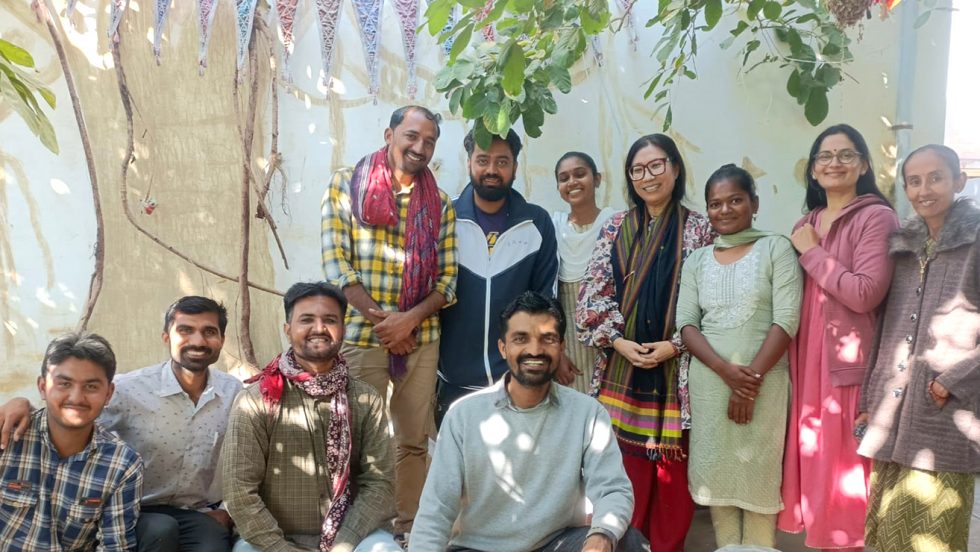
Hanna Kim, PhD, professor and chair of the Department of Anthropology, has returned from a year away, studying and educating others about the Hindu community and religious group she has been researching for decades. Now she’s ready to complete a book on her work—and fuel her students’ passion for scholarship.
For three decades, Hanna Kim, PhD, has had a largely singular focus in her research: a specific Hindu community and religious group called BAPS, the common shorthand for Bochasanwasi Akshar Purushottam Swaminarayan Sanstha. So it seemed logical that “a continuation with intent to move toward a conclusion,” she said, would be part of her sabbatical year beginning in December 2022.
Current chair of the Department of Anthropology and a faculty member since 2008, Dr. Kim didn’t have to think too hard about what specifically her sabbatical work would entail.
“It was actually right there before me,” she reflected shortly after her return to campus in January of this year. “Anthropologists generally do have a long-term commitment to research a particular geographic region, topic, community. And of course, over time, topics change, questions change, communities change, but we have the advantage of seeing the expanse of time as it unfolds.
“I’ve known since I finished my dissertation in 2001 that I would one day write a book on this particular community.”
Much of her efforts in the last year have centered on that book, tentatively titled The Globalization of a Modern Hindu Community: Ethnographic Chronicles on the BAPS Swaminarayan (with a publisher’s deadline of late 2024). Her research networks in terms of geography include, of course, India, but she has expanded them to include Bangladesh, Japan, South Korea, Poland, Norway, Kenya, Canada and Brazil.
A Relationship That Started Three Decades Ago in Eastern Africa
Dr. Kim’s long interest in BAPS started during the rainy season in Kenya in 1988 before she started graduate school. There, while she was participating in WorldTeach, an NGO (nongovernmental organization) that provided opportunities for individuals to live and work as volunteer teachers in developing countries, she met a family who retained their language and family connections from the western Indian state of Gujarat, where BAPS originated. That introduction led her to India for language study and then to numerous trips to the national capital New Delhi, the state of Gujarat, and later to locations around the world where BAPS adherents have expanded its temples and communities—including a major temple in Robbinsville, New Jersey, and others in England, Canada and Australia, for example, and a new temple dedicated just this February in Abu Dhabi, United Arab Emirates. (Dr. Kim was an invited guest and observer.)
Since December 2022, she has made four trips to India, each visit lasting at least several weeks—resulting in many months of the past year being spent in India. She gave invited talks at several institutions in India, but also in Qatar and South Korea; did a podcast on a new book about Indian religions; published in academic journals; worked on grant projects and grant applications; and juggled three books in progress besides her main book focus.
One of those other projects was supported by a Franklin Research Grant she received from the American Philosophical Society for her project, After the Earthquake: Disaster Discourses and Visions of Society in Kachchh, Gujarat. In 2001, the western region of India experienced a devastating earthquake from which it has taken years to recover. Dr. Kim is working on an edited volume, tentatively titled Disaster Discourses, that explores transformations in opportunity and aspirations when there is an enormous disruption to the ways things used to be.
Part of her efforts during the year was getting to know young artisans and entrepreneurs, 40 and under, and how they have managed since the earthquake. She examined small-scale activism, from the artisans to those building an ecotourism operation. “It’s public anthropology mode,” she said. “Doing anthropology should actually result in some sort of public benefit.”
Another project, done in partnership with a professor of design, is examining the lives and work of shoemakers in a northern Indian city and tracing the connections between their histories and opportunities during times of social and economic change. Dr. Kim will return to India in the spring to continue her research, thanks to an Adelphi Faculty Development Grant she received for her proposal, “Synergies in Knowledge Ownership: Shoemakers, Stand-Up Comics and Culture Activists in Uttarakhand, India.”
Establishing Close Relationships Benefiting Her Professional Field and Her Students
Dr. Kim notes that her long-term academic and professional work is like a kin relationship. “It’s a community of which I’m not a devotee, but it’s like being part of a family in a way. I see how people and cultures are always changing and shifting, not in a vacuum but in relation to existing ideas, power structures, and historical, social, political and ideological contexts. I’ve had the privilege of tracking BAPS over time,” and this supports her larger objective to understand how religious communities are able to successfully sustain themselves through time.
The value of travel and expanding one’s horizons cannot be overstated for an anthropologist. “Getting out of the familiar, for example, by study abroad or sabbatical research, can provoke us to think about ourselves in relation to another place,” Dr. Kim said. “There’s a heightened sensitivity to what you think you already know.”
And that translates to her classroom work as well. In addition to exploring ways to make connections for Adelphi and its students with India, she believes her work makes her a better educator. “I feel a renewed optimism after a year away, both in my research and teaching,” she said. “Work like I’ve been doing is what, in my case, really animates the classroom.”
Here are just a few of the many moments from Dr. Kim’s time away from January 2023 through January 2024.
A Yearlong Sabbatical Refuels Department Chair’s Passion
Hanna Kim, PhD, professor and chair of the Department of Anthropology, has returned from a year away, studying and educating others about the Hindu community and religious group she has been researching for decades. Launch Gallery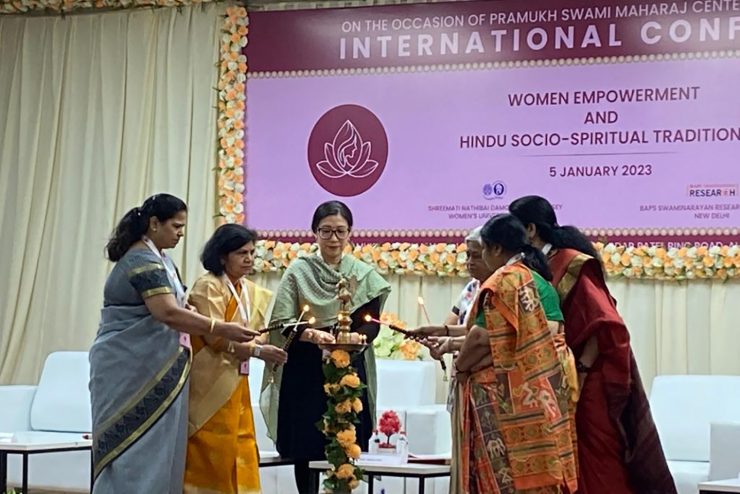
A Yearlong Sabbatical Refuels Department Chair’s Passion
Hanna Kim, PhD, professor and chair of the Department of Anthropology, has returned from a year away, studying and educating others about the Hindu community and religious group she has been researching for decades. 9 Photos-
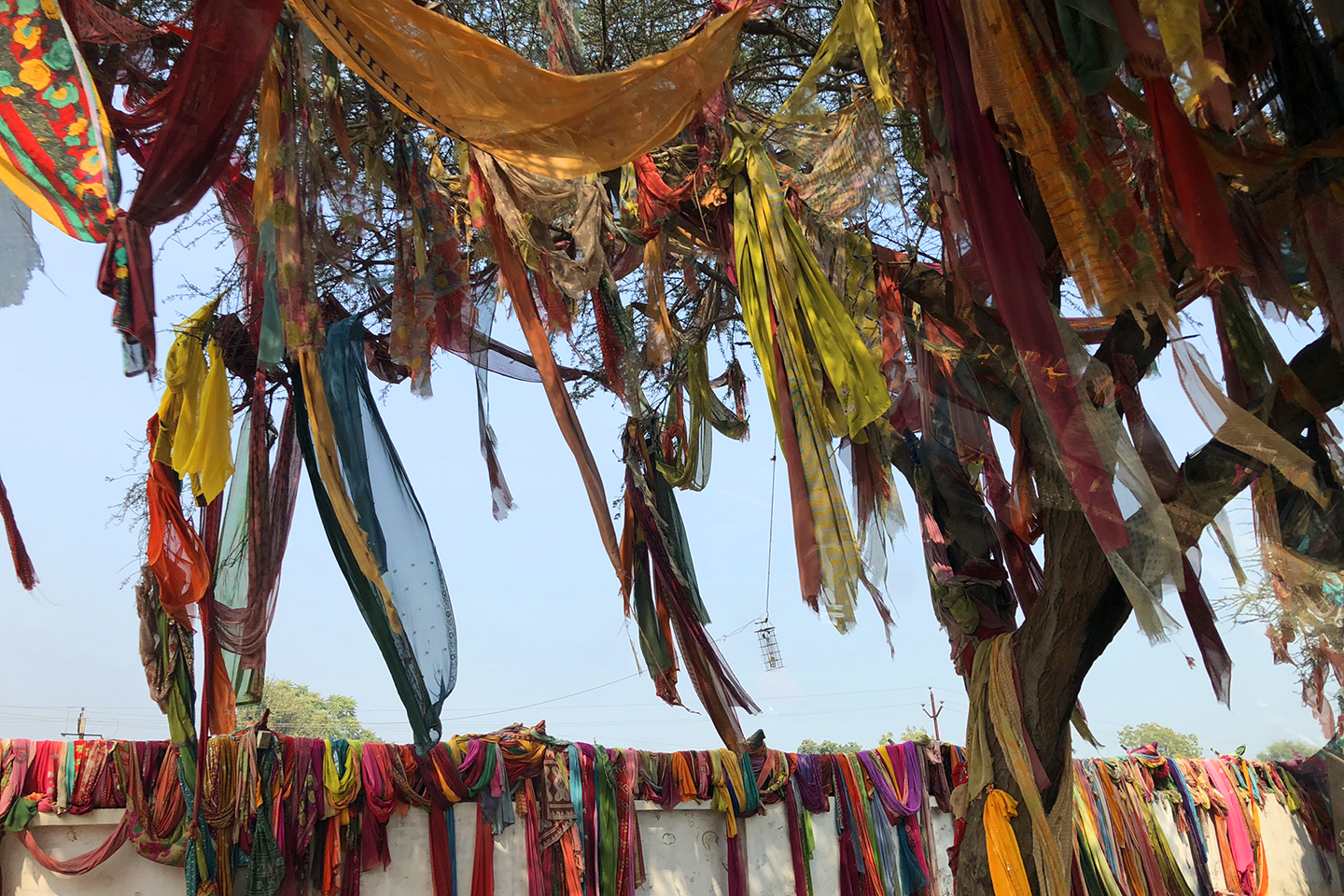
These cloths in the trees in Kheda District, Gujarat, are expressions of an animist devotional tradition that is very much alive in India.
-
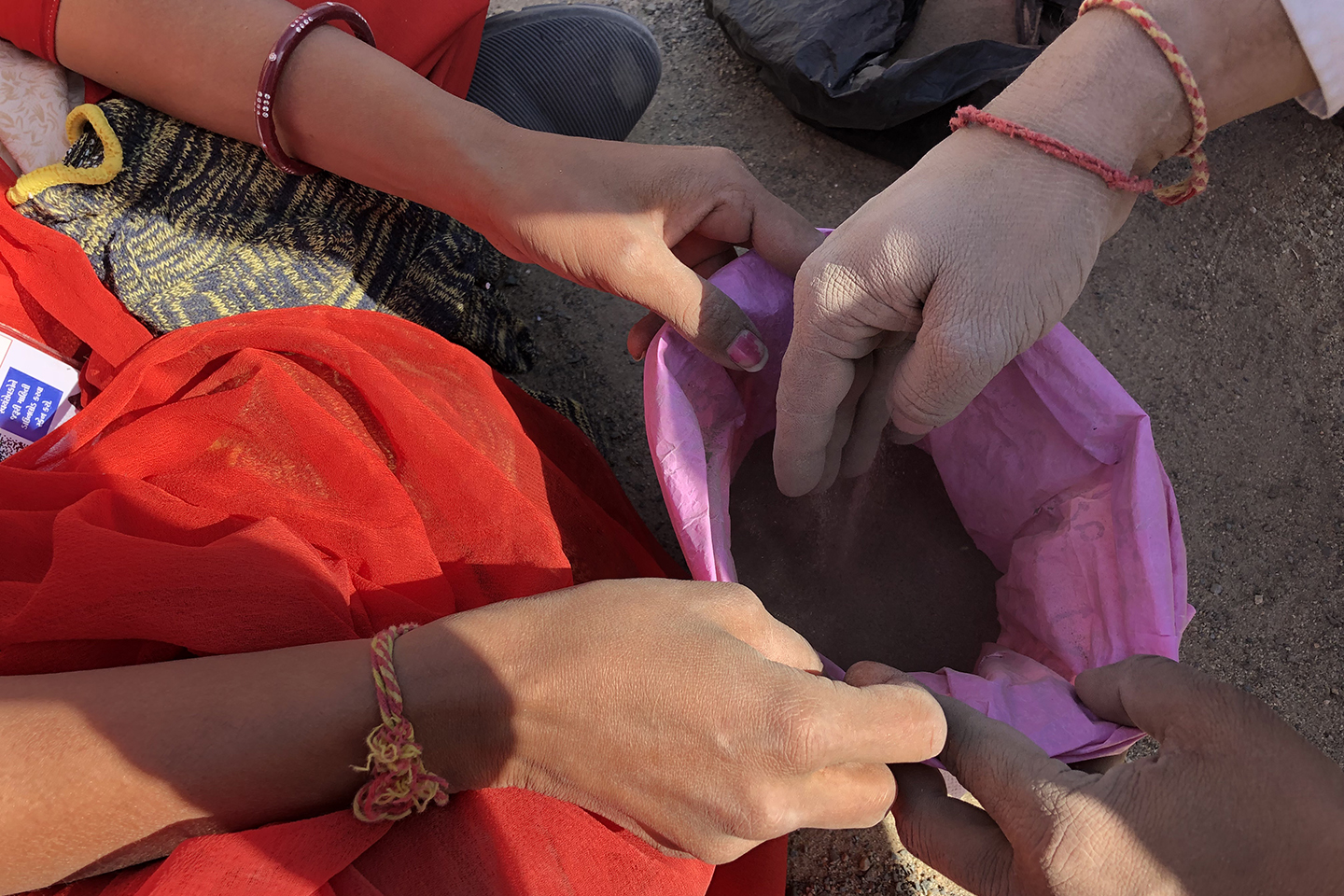
BAPS devotees collecting sacred “soil” from the grounds of the festival honoring their guru at PSM100
-
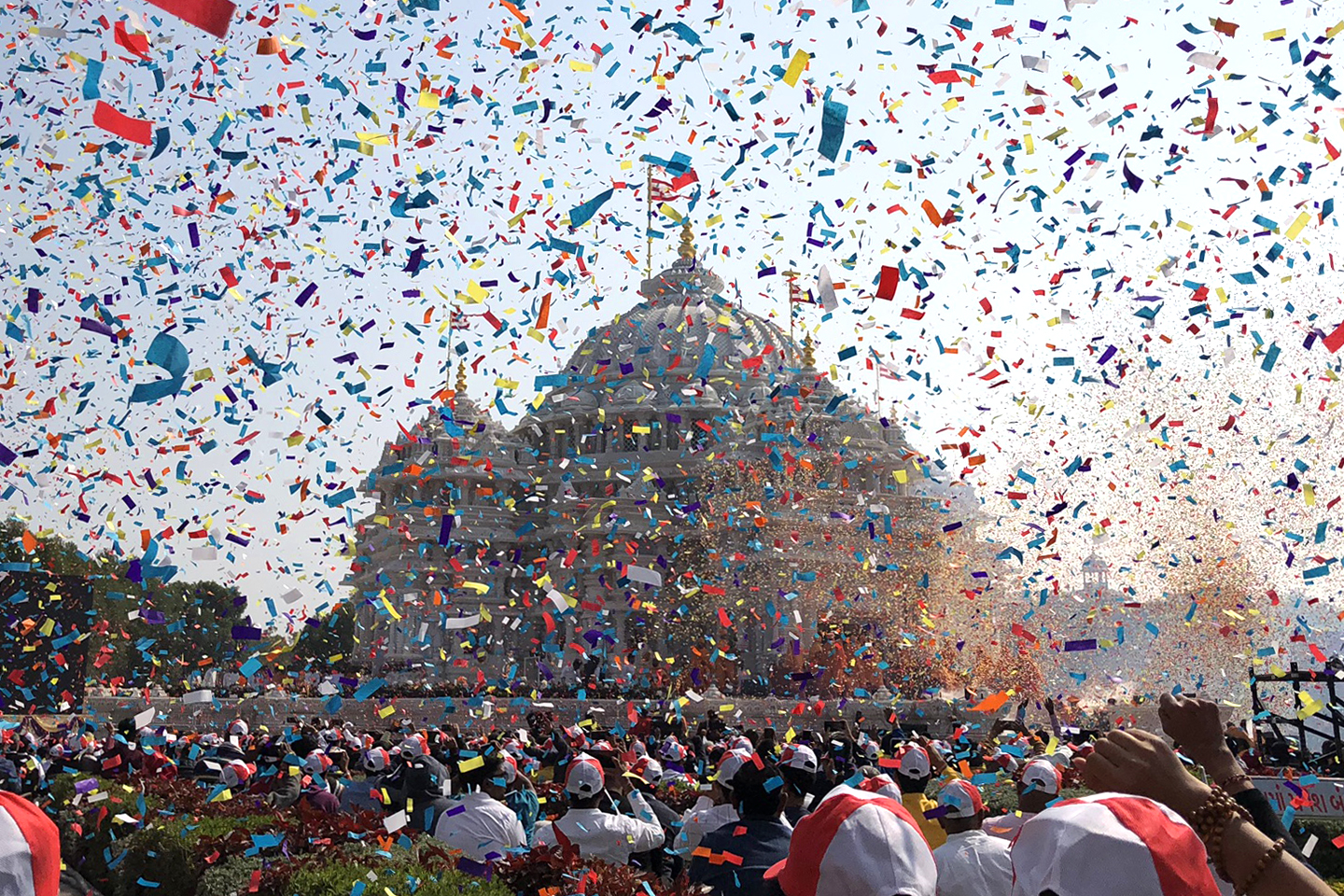
Celebrating the inauguration of the memorial temple for guru Pramukh Swami Maharaj
-
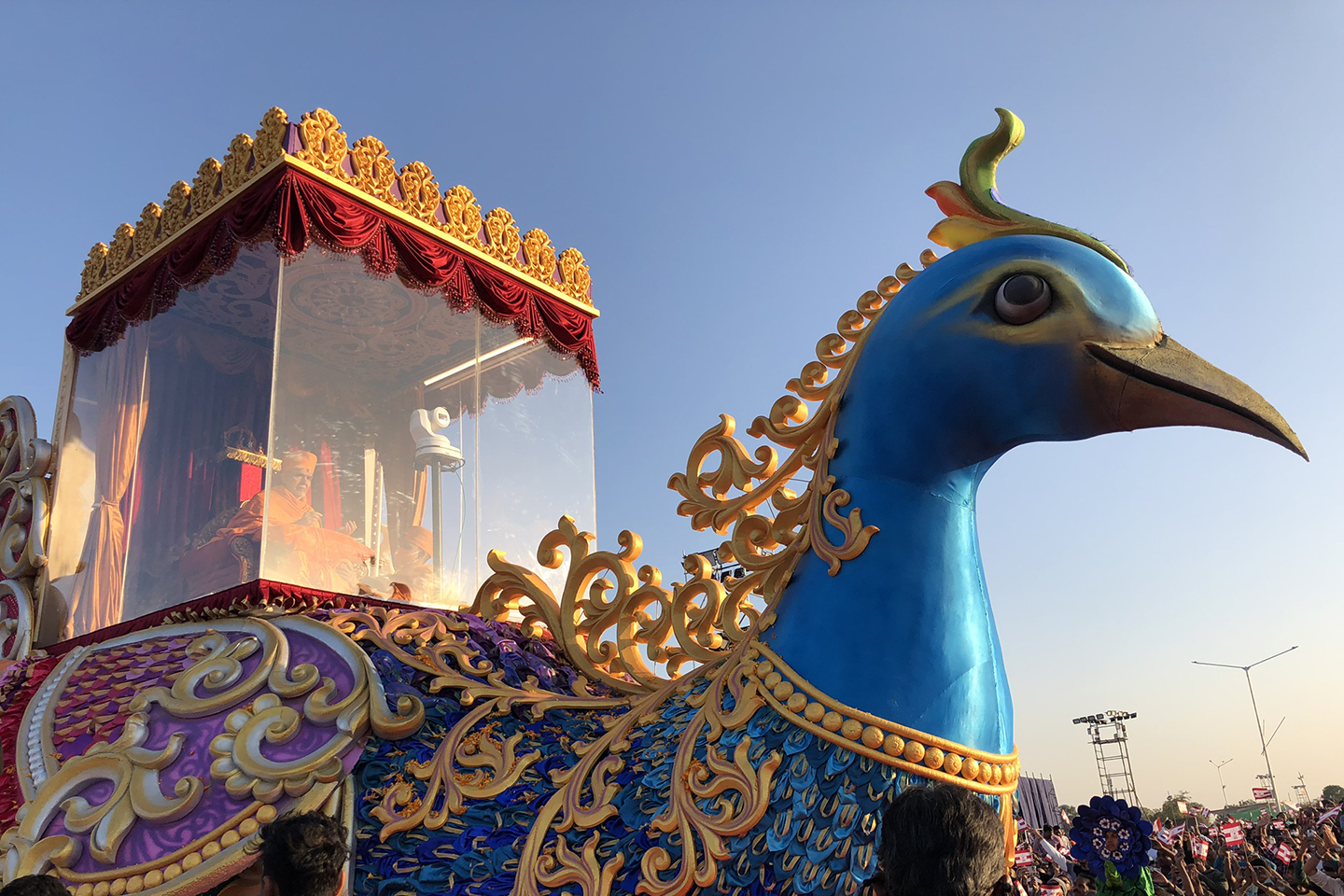
Guru Mahant Swami Maharaj sitting on a peacock float at PSM100
-
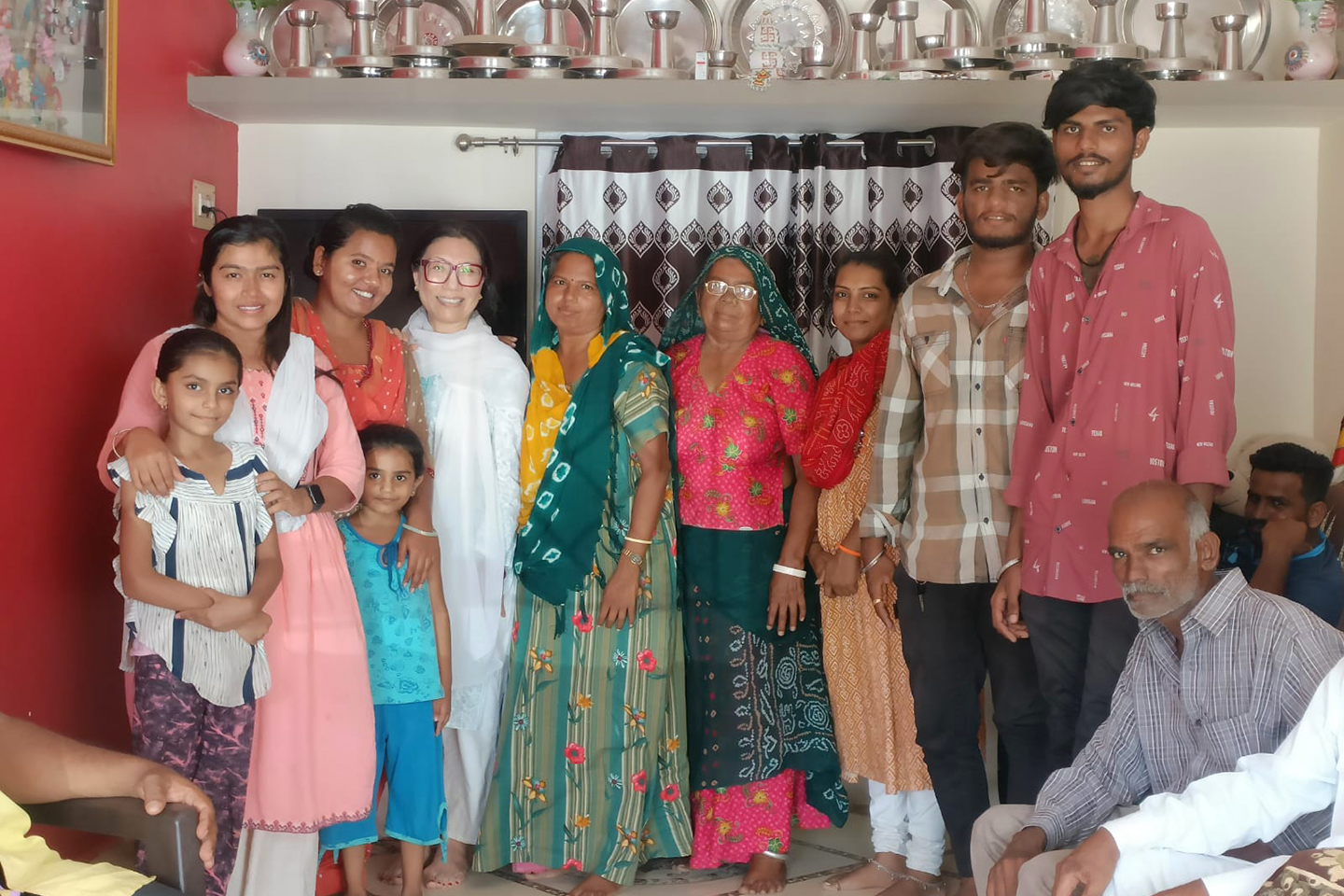
Dr. Kim (fourth from left) visits a crochet artisan (at her right) and her family for her research project on an artisan collective.
-
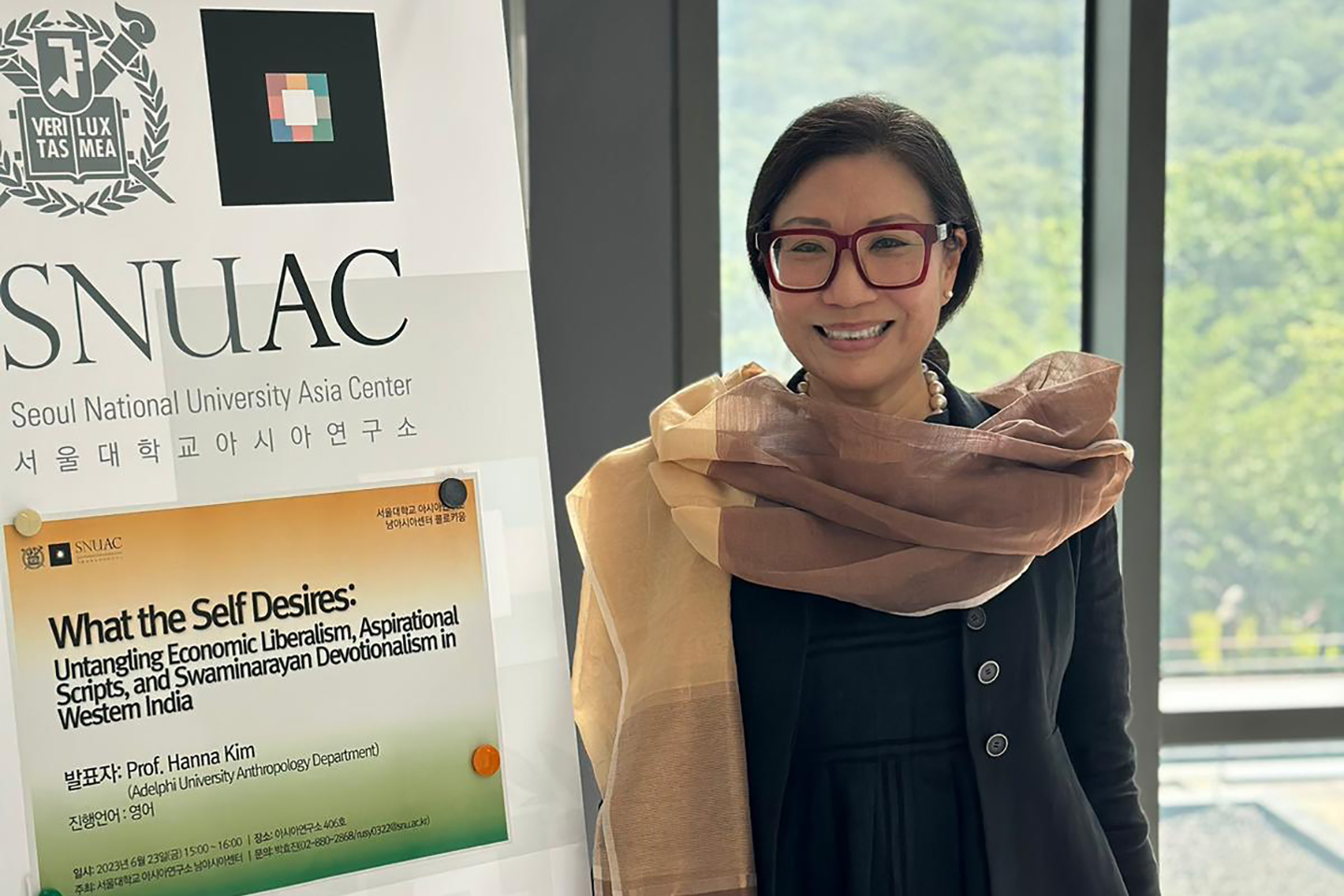
Dr. Kim stands before the announcement of her invited talk at the Center for South Asian Studies, Seoul National University Asia Center.
-
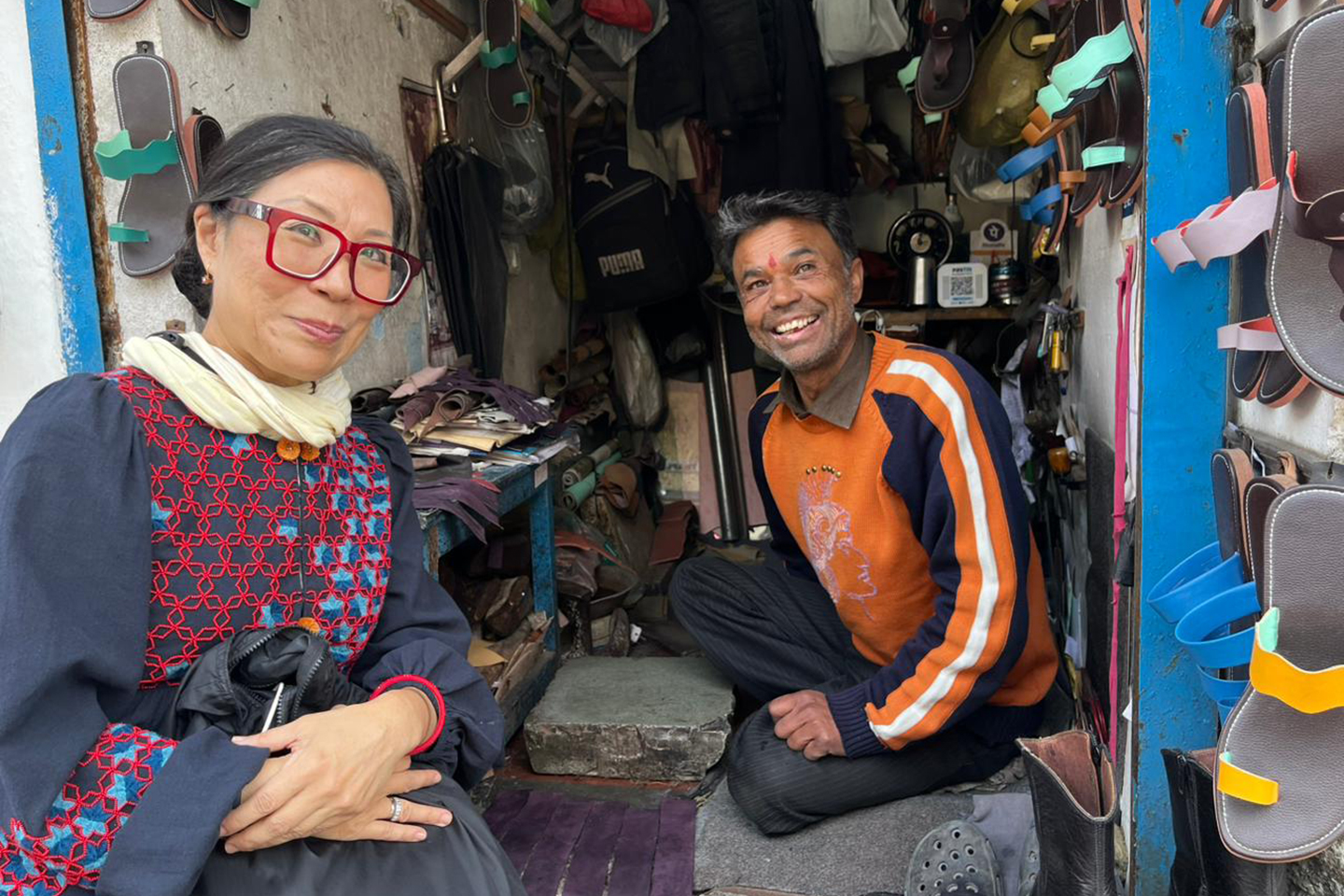
Dr. Kim meeting shoemaker, Ashok Kumar, one of her interlocutors for her Adelphi Faculty Development Grant project on shoemakers, stand-up comics and culture activists in Uttarakhand, India
-
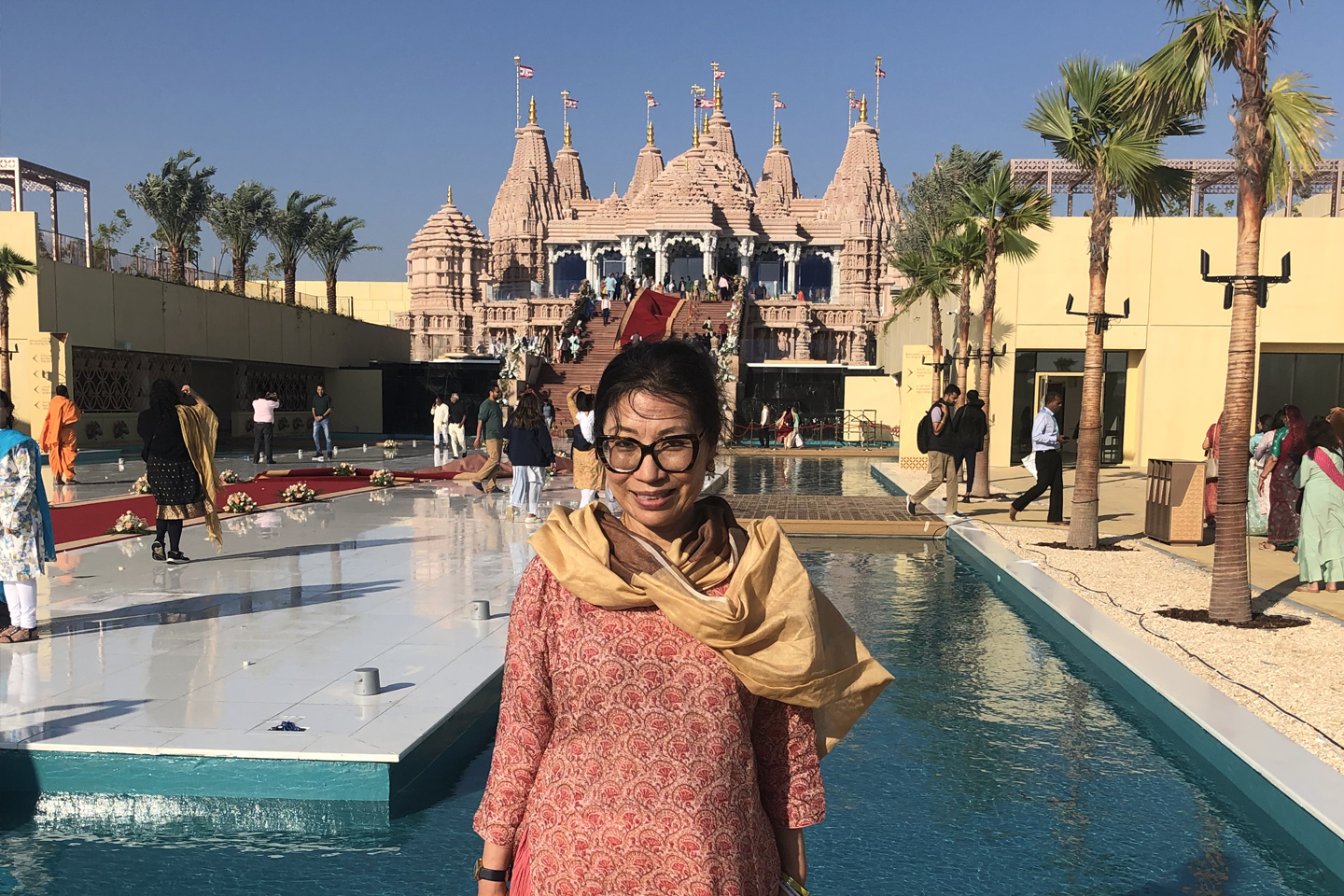
Dr. Kim visits the BAPS Hindu Mandir temple in Abu Dhabi.
-
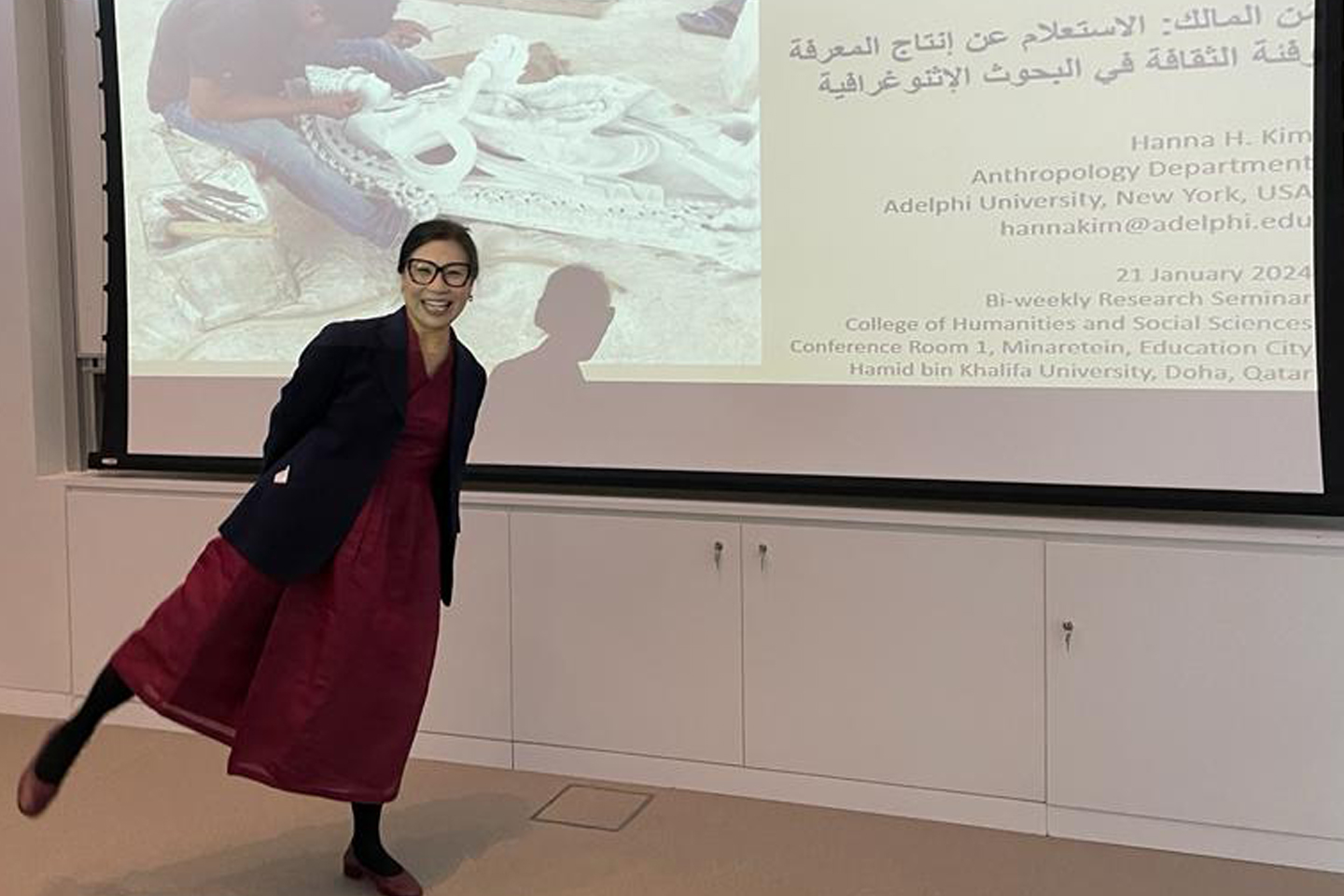
Dr. Kim, before her presentation at the College of Arts and Humanities and Social Sciences at Hamid bin Khalifa University in Qatar, anticipating flying home after a year away